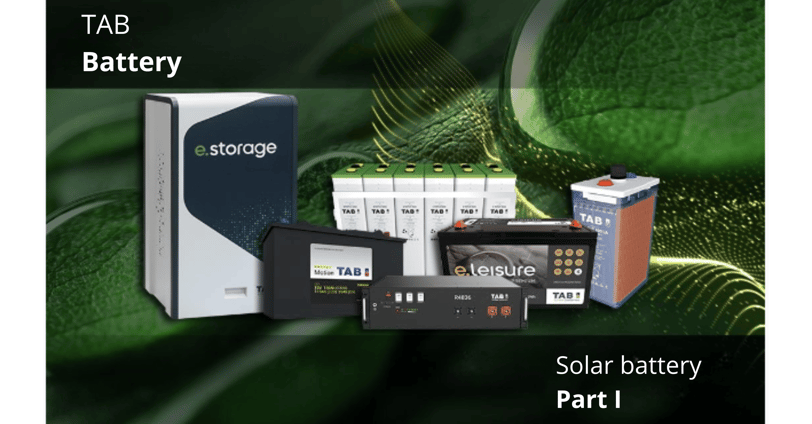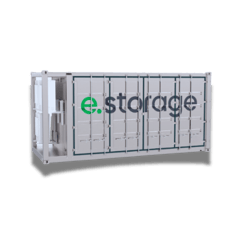Everything you need to know about solar batteries - Part I.
When building a photovoltaic system, the batteries for the solar system play a vital role in its operation. Especially if you want to be as independent as possible. For this reason, AKUBAT would like to tell you everything you need to know about solar batteries for hybrid PV systems before purchasing them. In this first part, we will take a small introduction to explain what they are, how they work and what this type of battery is used for.
9/24/20242 min read


Table of Contents
1. What are batteries for solar systems?
2. How does a solar battery work?
3. What are solar batteries for?
1. What are solar batteries?
Batteries for solar systems, also known as solar accumulators, are electrochemical storage devices that store energy to give our homes greater energy independence.
Specifically, they store the excess electricity generated by the solar panels on our roof so that we can use it when we need it. This means that we can use the electricity even at night, when our solar panels are not generating power.
2. How does the solar battery work?
The functioning of a solar battery is based on oxidation and reduction reactions of the chemicals that make up the battery. When one of these substances oxidizes and loses electrons, the other gains electrons, so it is reduced and energy is transferred out or the battery is charged.
This type of battery contains chemical cells with a positive and negative pole. In addition, there are electrolytes that allow electricity to flow outwards. It is in these cells that the chemical reaction takes place that converts chemical energy into electrical energy.
There are two types of batteries: primary and secondary. Primary batteries come pre-charged and are considered disposable, while secondary batteries allow charging and discharging for a set number of cycles. In the case of solar installations, we must always have secondary batteries that can be returned to their original configuration if certain conditions are met. For example, if we supply electricity to a battery or charge a component that has oxidised and then close the circuit, this prevents it from discharging at the same time.
3. What are solar batteries for?
The main purpose of a battery in a PV system is to store electricity to be used when solar power production is lower, or to support peak demand when our electricity meter is very limited.
The main purpose of a battery in a PV system is to store electricity to be used when solar power generation is lower, or to support peak demand when our electricity meter is very limited.
The electricity that is stored comes from excess solar energy (when consumption is less than production). Although we must not forget that there are losses in the process of charging and discharging solar panel batteries, which in the case of lithium batteries are around 8%. In addition, there are other advantages that make batteries in PV installations very useful:
This is one of their main advantages, which prevents stock depletion. In addition, they make it possible to replace generators whose maintenance and operating costs are very high.
They serve as a backup system: thanks to the solar panel batteries, you don't have to worry about power cuts in which the solar panels stop producing for safety reasons, because the energy is stored in the batteries for these cases.
In off-grid installations: they are necessary to maintain the installation when solar power is not available. It is necessary to calculate the appropriate capacity of the batteries so that there is enough energy left in them for one or two days without sunlight.
Our battery systems are ideal for industrial plants, businesses, households and the motor industry.
© 2023. Rights reserved Icon Volt s.r.o.
Innovation and Efficiency


Sign up for our newsletter




